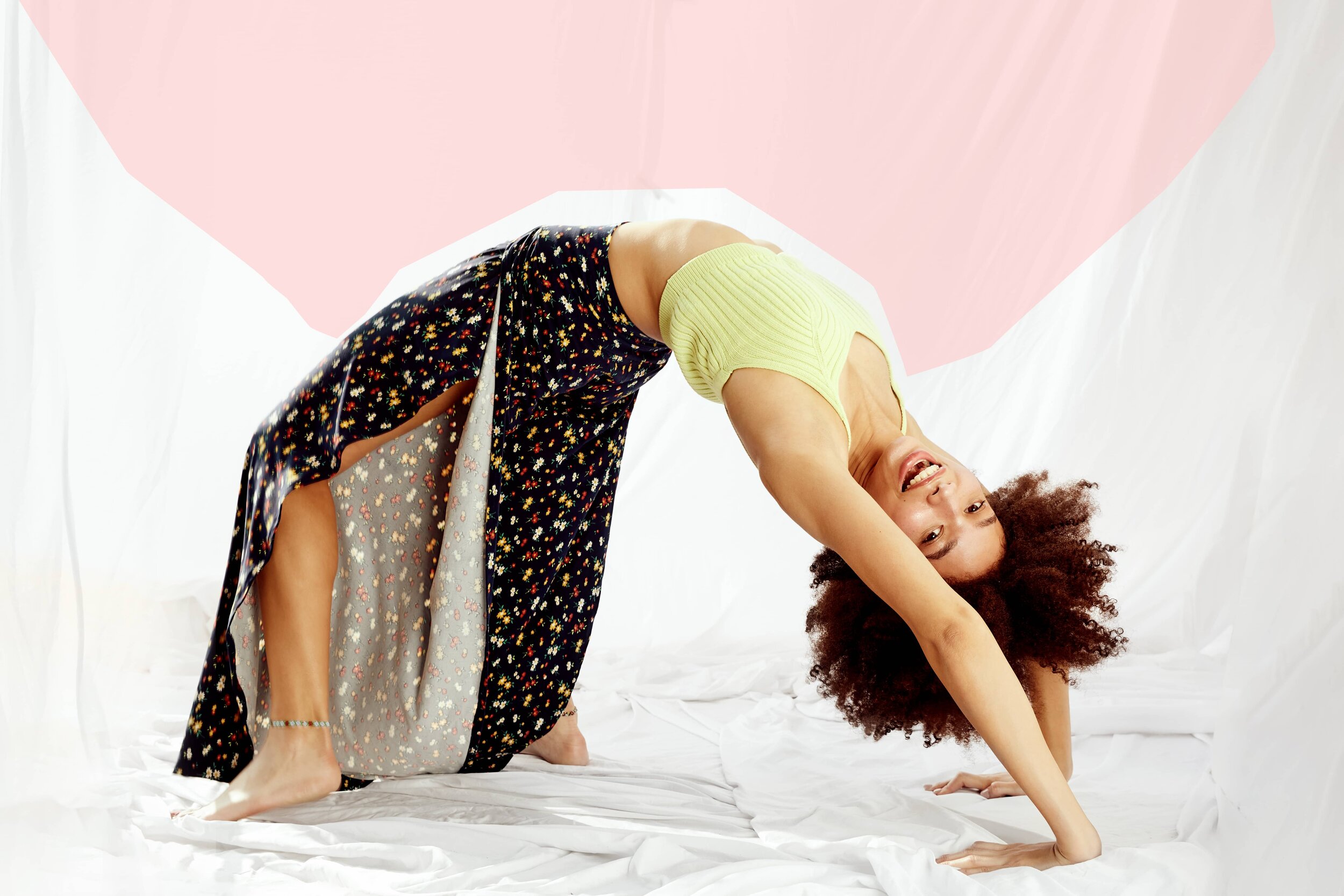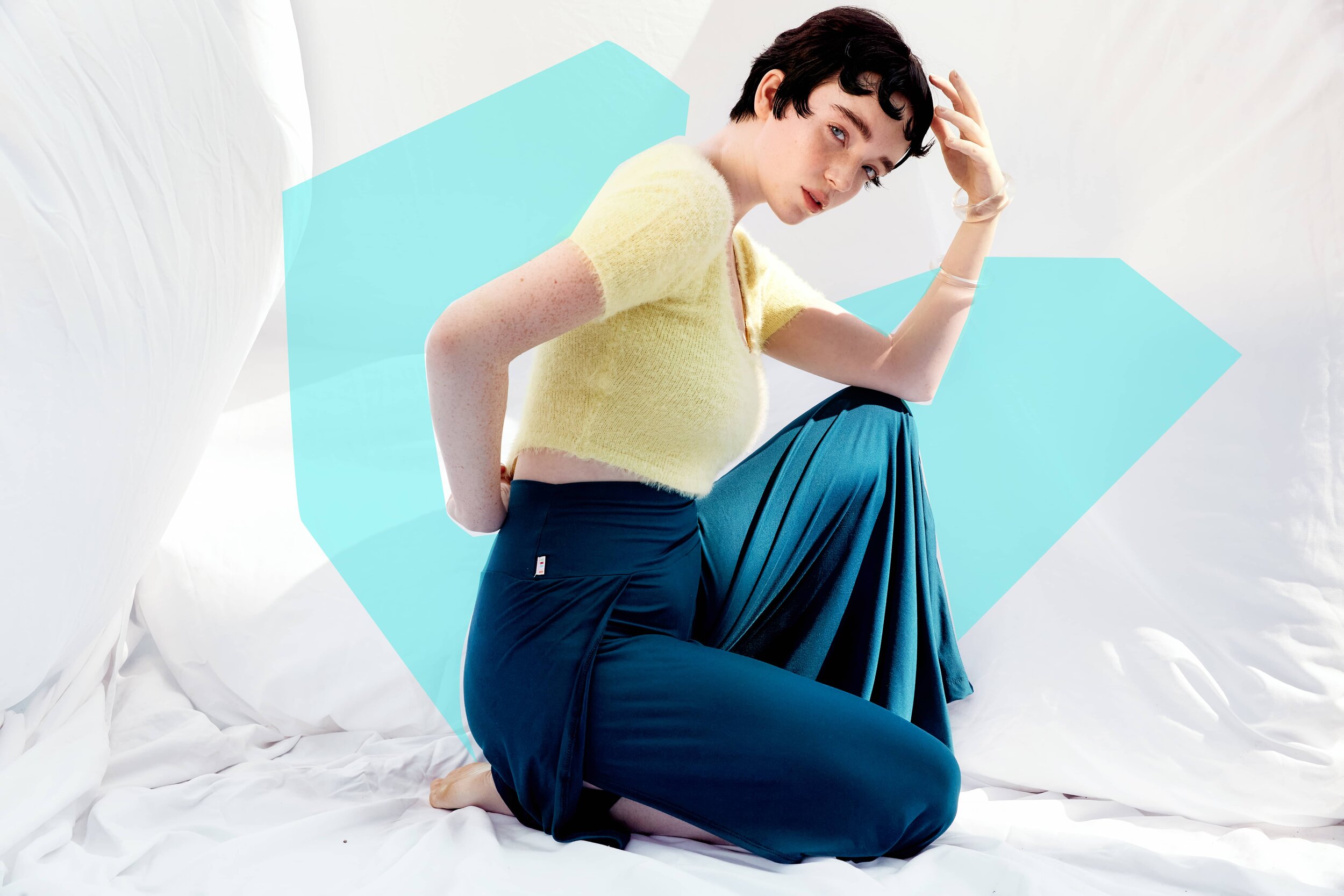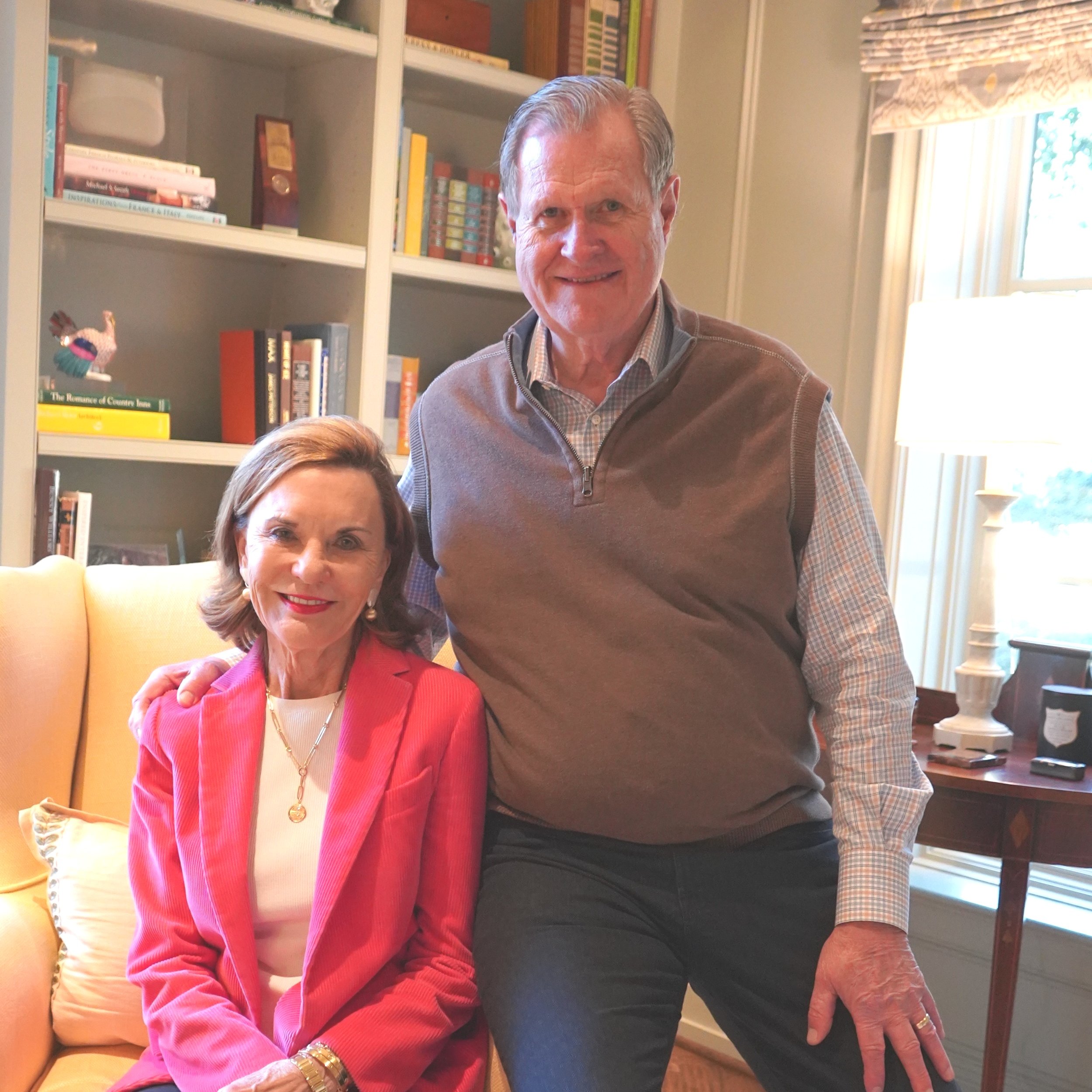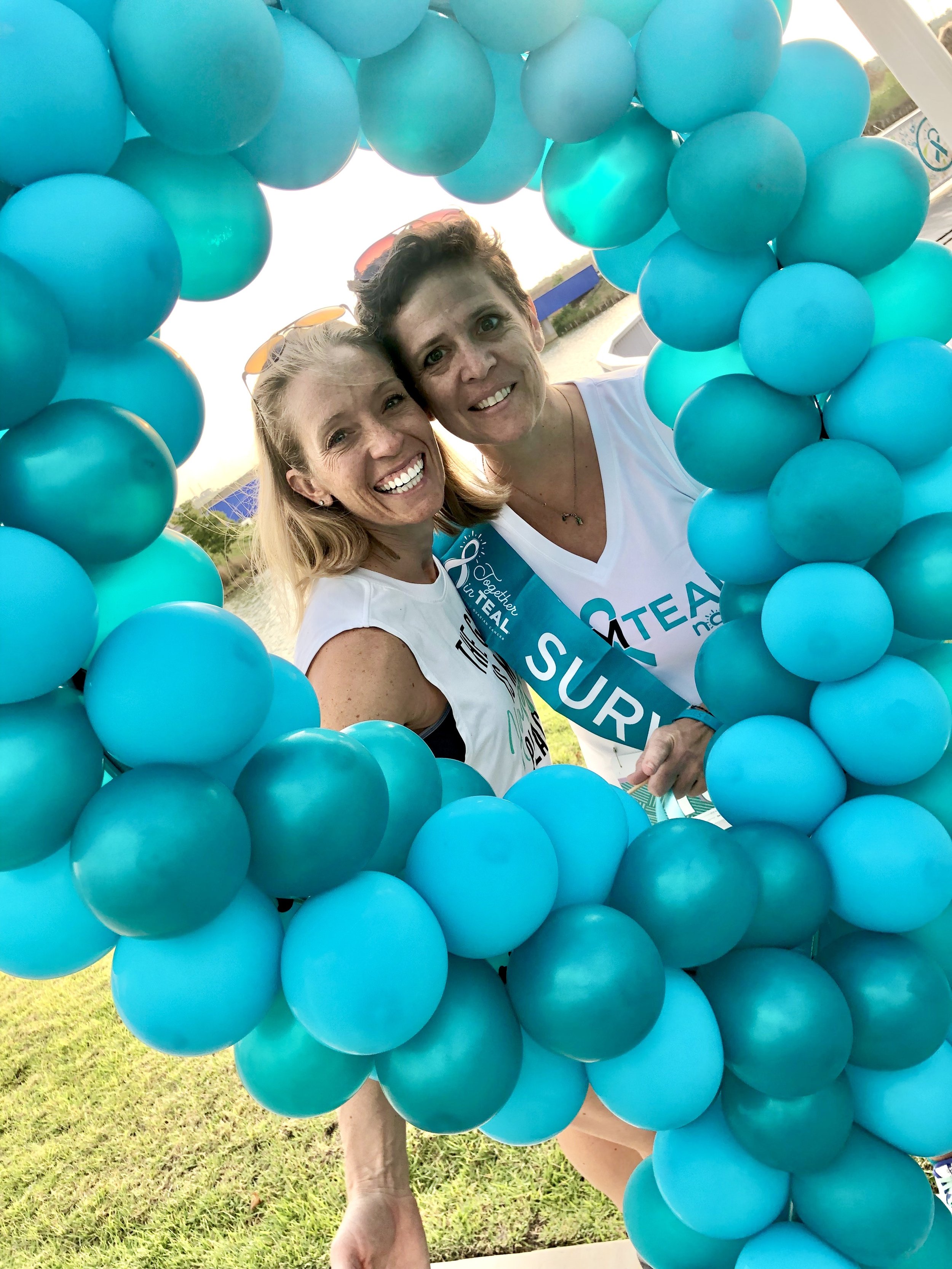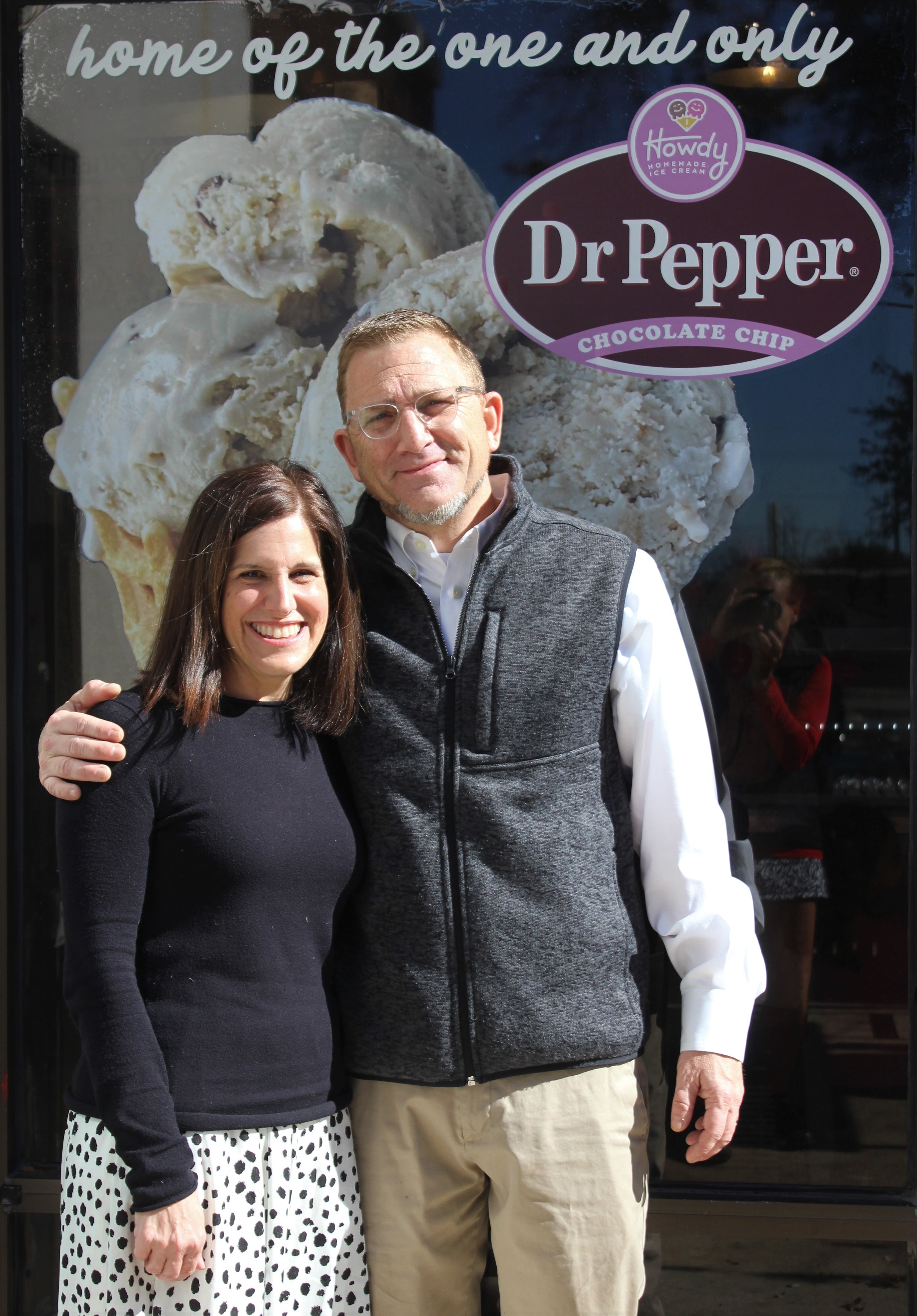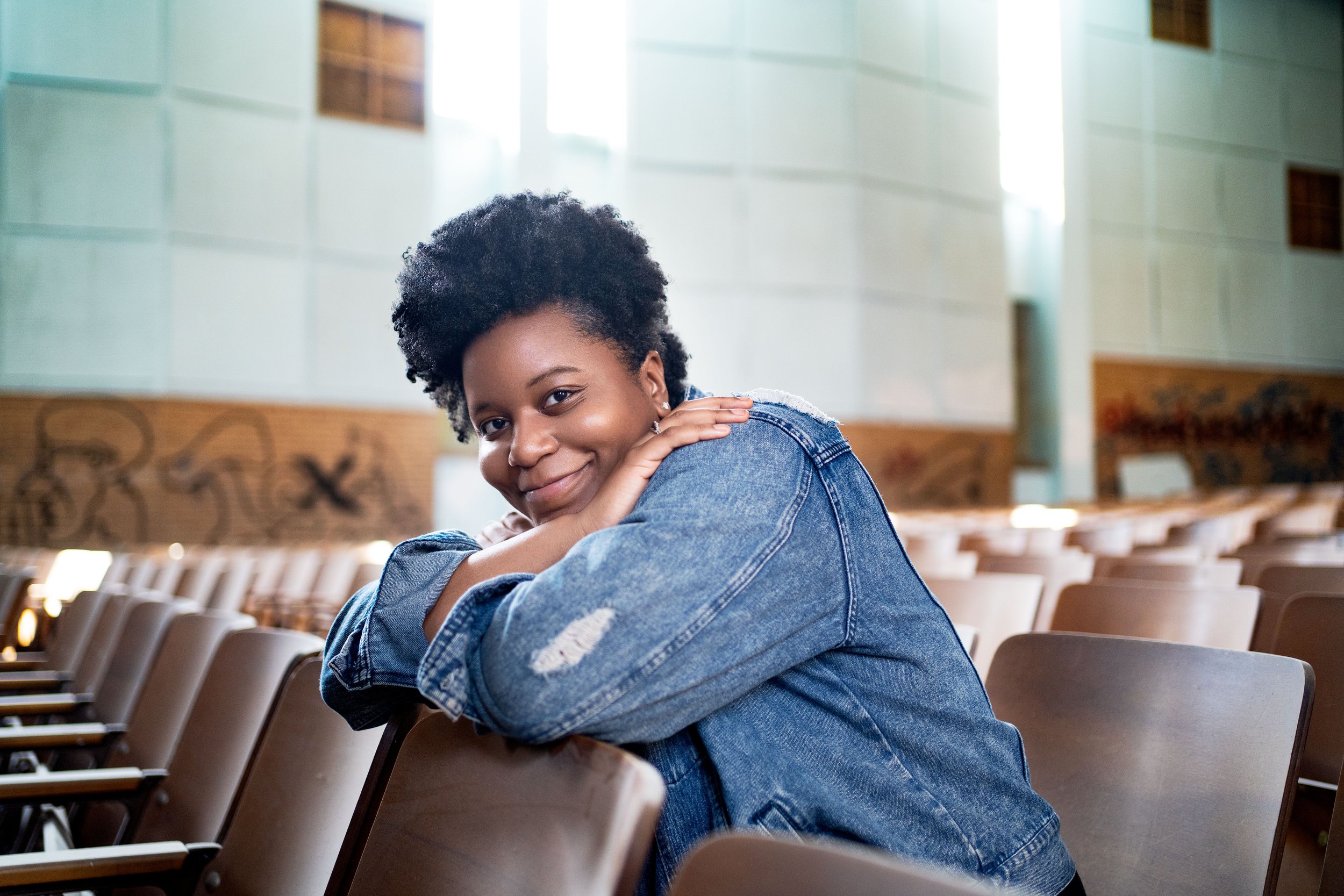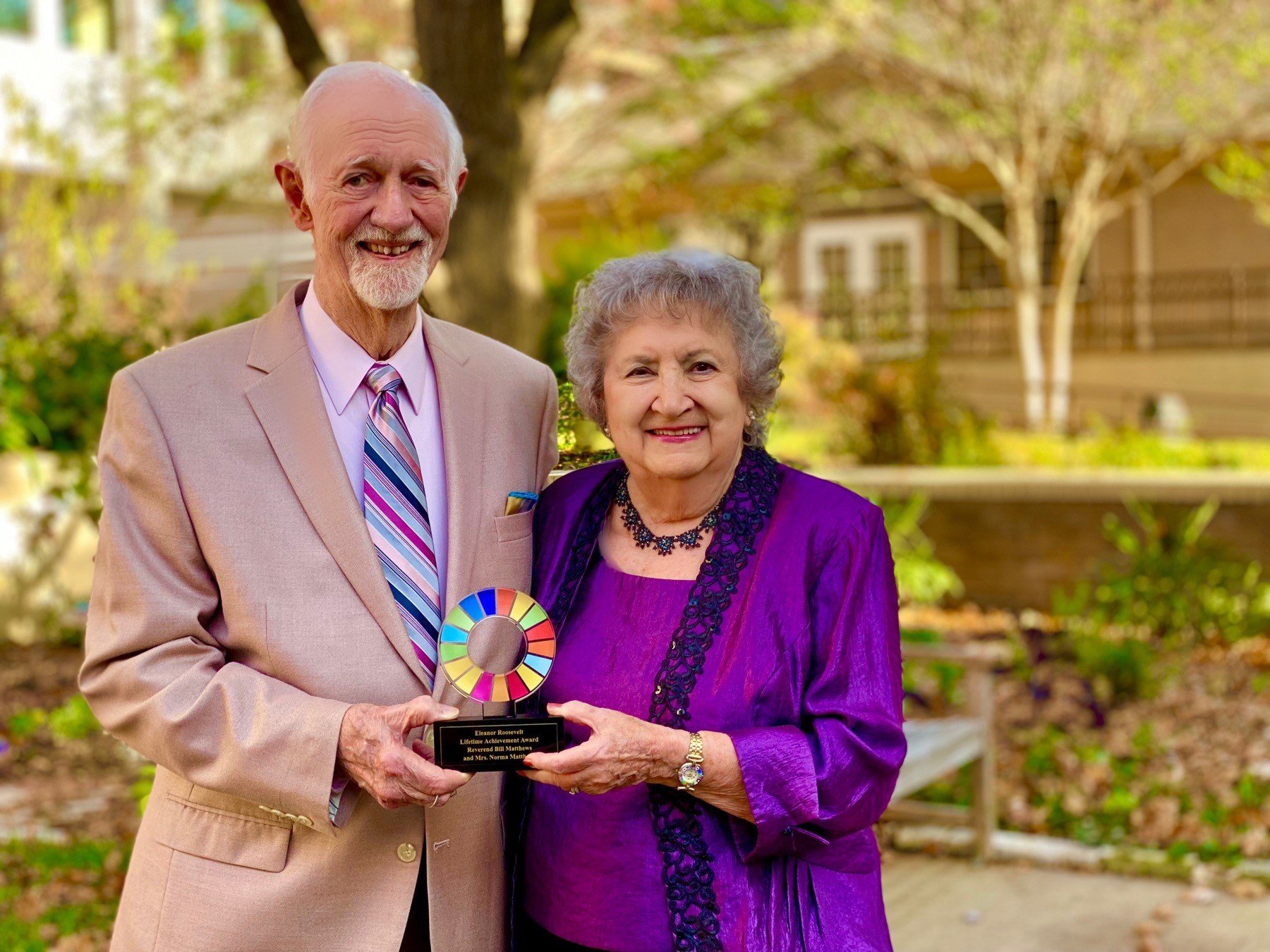Published March 9, 2021 at 4:42pm
Story by Neha Patel. Photos by Liliana Banta.
While studying at the University of Pennsylvania in 2016, Emmy Hancock received the opportunity to attend the Cannes Film Festival where she viewed a special showing of the film I, Daniel Blake. As the movie played, a particular scene caught Emmy’s attention—the protagonist is caught and accused of shoplifting at a gas station. The police officer takes her to the back and the first items he pulls out of her bag are menstrual products. The protagonist begins to cry silently. It was then Emmy realized the severity of period poverty. “It’s one thing to read about and conceptualize it in your mind but seeing it so visually on the big screen, I realized I’ve never really understood what the emotions are behind having menstruation as an obstacle,” recalls Emmy.
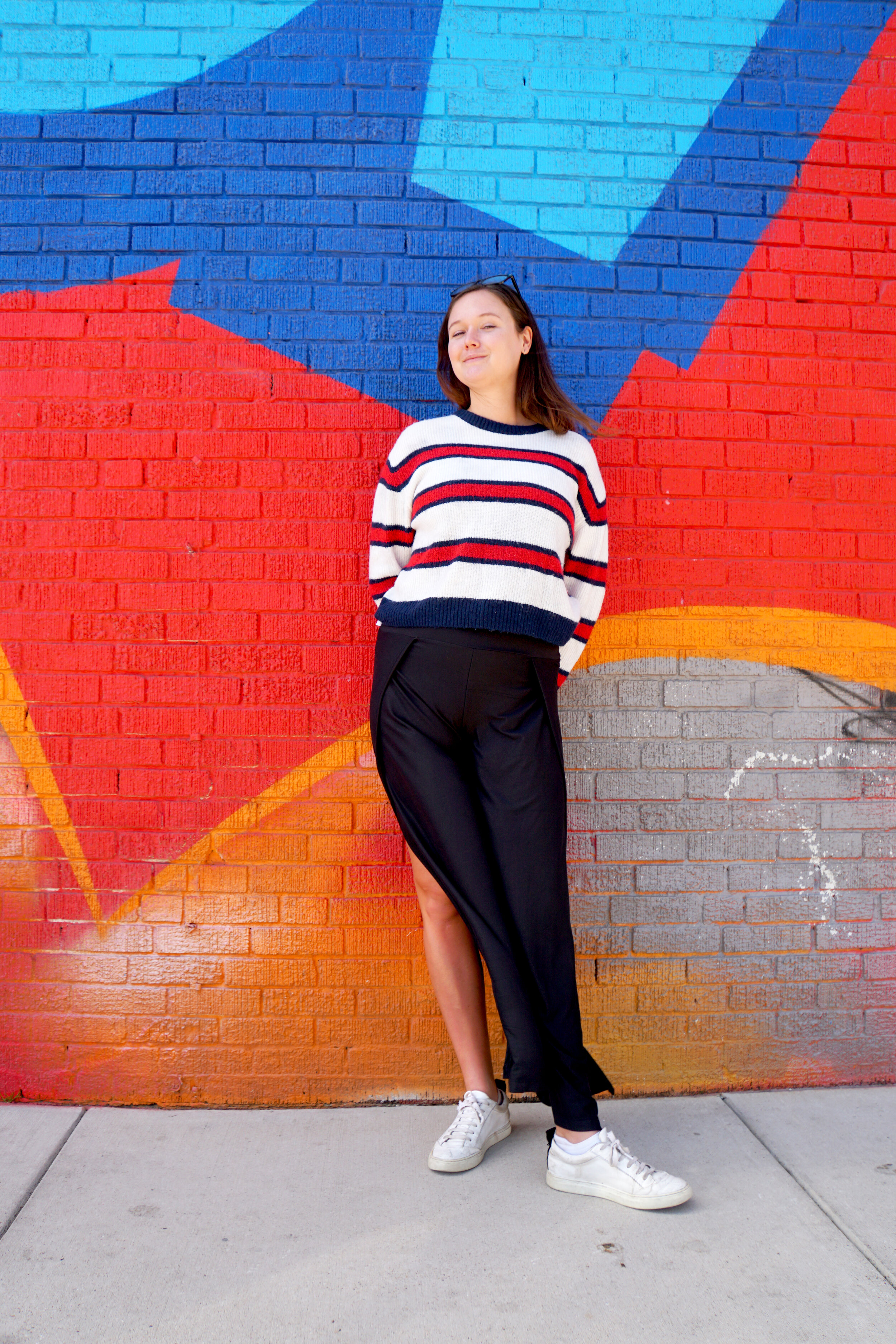
Four years later, that realization led to the birth of her online fashion brand Oluna – for every pair of pants the company sells, they donate a year’s supply of menstrual products to someone in need to promote awareness to menstrual inequity.
Emmy Hancock was born and raised in Dallas, TX and attended The Hockaday School, an all-girls preparatory school. Growing up, Emmy’s mother was an inspiration when it came to giving back to the community. Due to her mother’s involvement with various charity events in the Dallas area, philanthropy became incorporated in much of Emmy’s life. This led her to serve 500 hours of volunteer work in high school as well as the opportunity to set up her own philanthropy event for an after-school program called Reconciliation Outreach. After high school, Emmy studied at the University of Pennsylvania as a Criminology major and film minor, which led her to the opportunity to attend the Cannes Film Festival and, ultimately, to the idea of creating Oluna as a fashion brand for social good. On the day of her graduation in 2018, she filed the business paperwork for Oluna.
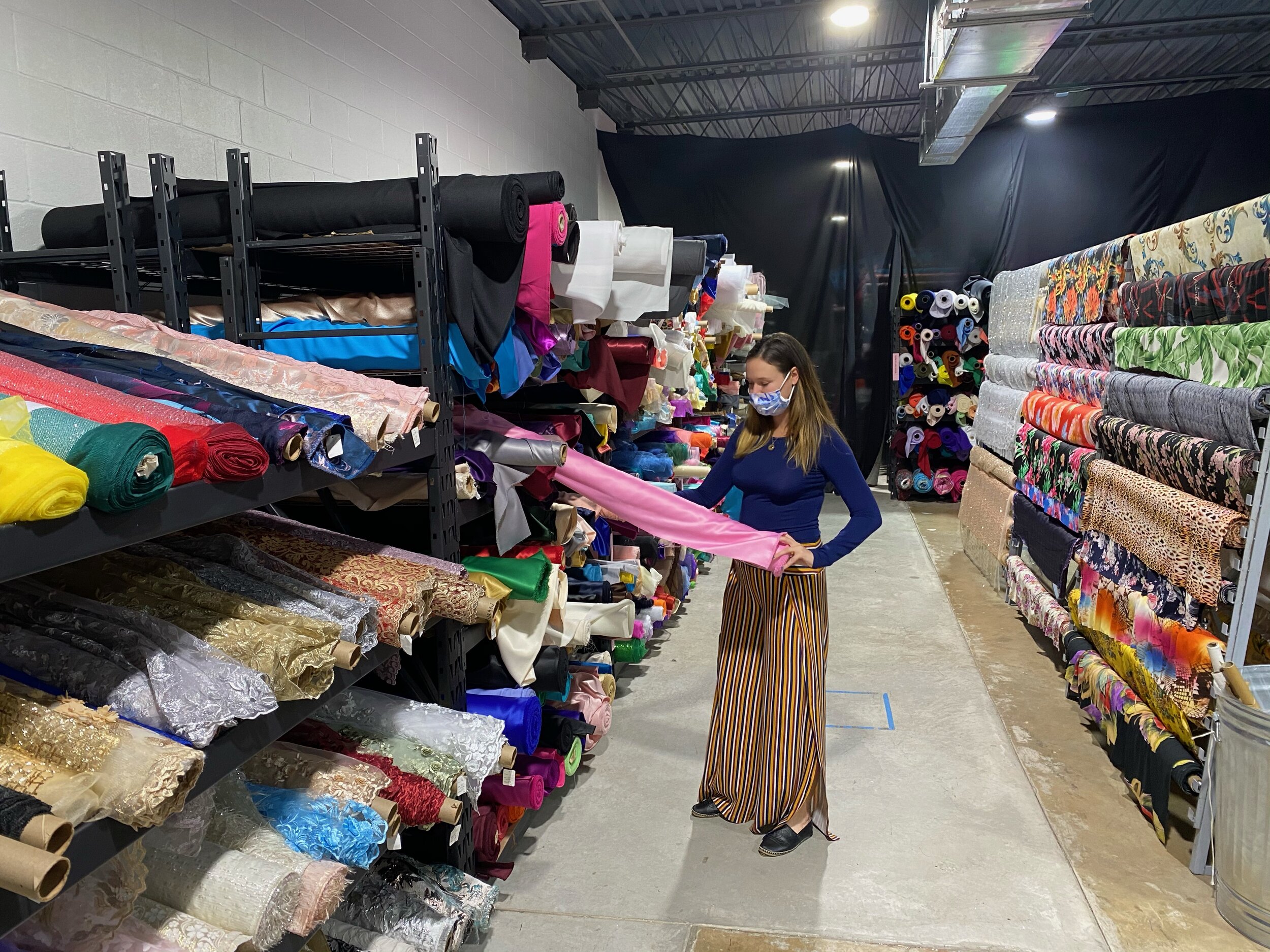
Emmy sources fabric for her pant design in 2020. (Photo courtesy of Oluna)
But rather than developing Oluna right after college, Emmy received a job as an investor relations associate at a real estate equity firm in New York. She worked for two years in the city in real estate and business development roles, committing herself to career growth, but leaving little time to focus on Oluna. “I always had the idea of Oluna in the back of my mind, but I never had the time or the financial resources to get it off the ground,” admits Emmy. But when the COVID-19 pandemic hit in 2020, Emmy moved back home to Dallas, giving her the time and commitment needed for Oluna.
With extra time on her hands, Emmy went straight to work on Oluna. She delved into more research about the issue of period poverty and reached out to nonprofits, seeking advice. She was able to find pattern makers and fabric manufacturers in the area for her fashion designs, making her products locally and ethically. In addition, Emmy found a photographer for her products, spent time building her website, and, finally, was able to launch her company in October 2020. “It’s been a pretty fast turnaround and I really attribute it to the era of coronavirus,” says Emmy.
Oluna does much more than raising awareness about period poverty. Along with giving a year’s supply of menstrual products to a person in need, the company also partnered with two nonprofits—Days for Girls International and Period, Inc. Days for Girls International, a global nonprofit, creates and supplies sustainable menstrual pads and donates them to girls in developing countries. Oluna is able to purchase from them in bulk, which helps fund the nonprofit, and uses their own distribution network to donate these products to ten homeless shelters in the Dallas area such as Genesis Women’s Shelter, Promise House, Our Calling, and Interfaith Family Services. These menstrual products also include educational materials to teach women on how to safely and effectively use them.
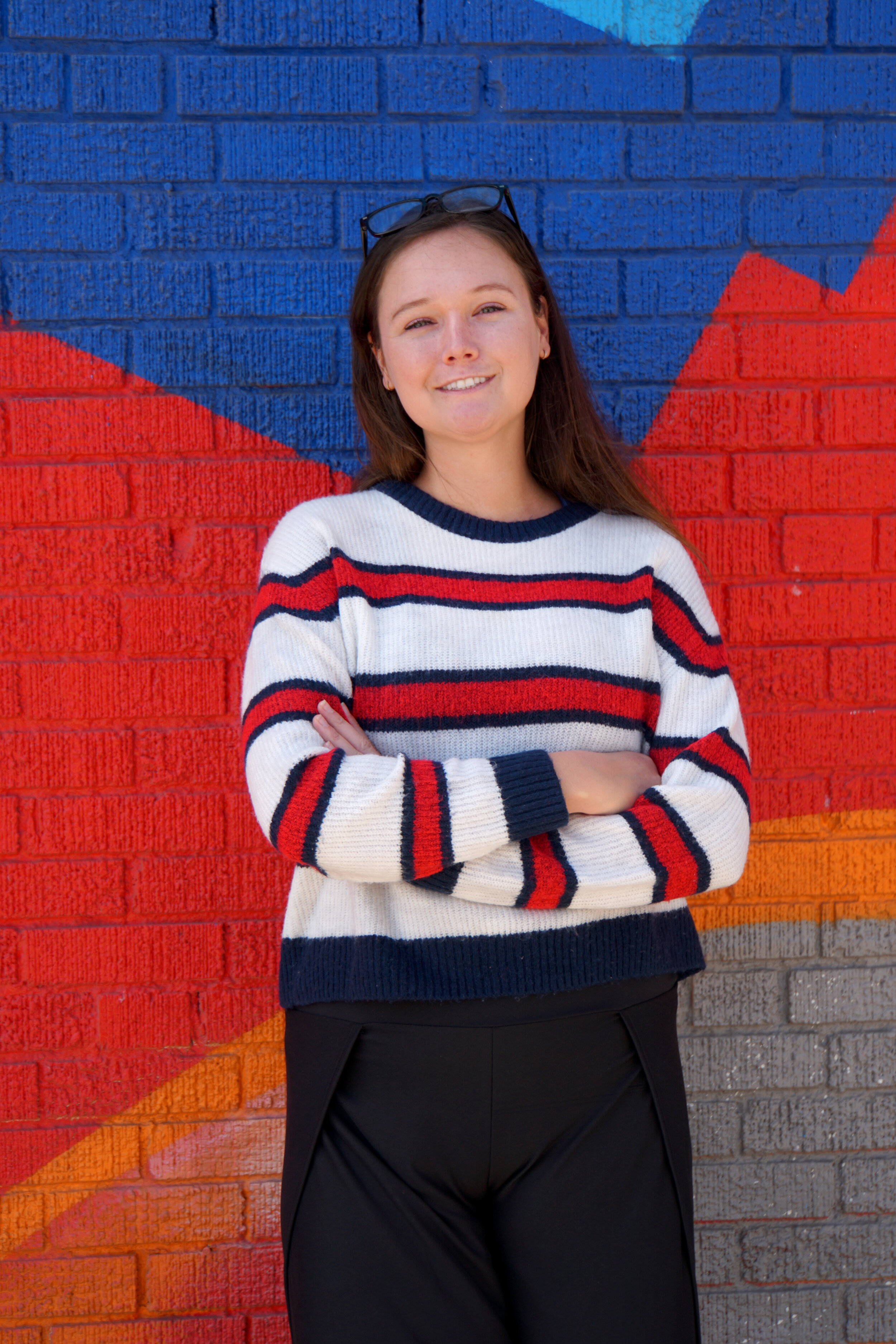
The second nonprofit, Period, Inc., is a youth-led organization that strives to end period poverty through education and advocacy. Oluna donates 50% of their merchandise profits towards menstrual education, policy, and research, led by Period, Inc. Both companies are currently working together to conduct a Harris Poll study to determine the effects of period poverty in urban versus rural settings.
Emmy also strives to destigmatize conversations surrounding mensuration and encourages more people to become comfortable with discussing the topic. She mentions that separating young age boys and girls when learning about mensuration creates a culture of secrecy growing up. “This is just how we’ve been raised and how society has functioned for years.” Emmy adds, “But it’s no one’s fault which is why I leverage this playful brand because, oftentimes, there is a lot of shame and pointed fingers surrounding the topic.” She stresses the importance of education on the issue and hopes to draw the conversation beyond women to include men in it as well.
Emmy references one particular moment in 2015 in which she refers to as “the year of the period,” where a wave of viral activism shed light on period poverty and women’s menstrual health. It was one the first moments in the media where menstruation was openly discussed as activists tried to break taboos surrounding the issue. However, the conversation did not last long in the media cycle. “What I realized was that an unfortunate component of viral activism is that it’s great for sparking the conversation, but the media cycle is very fast over social media, so it came and went,” she says. Emmy hopes to facilitate a continuous conversation through Oluna. She encourages people to take part in the discussion whether it be through educating oneself on the issue, supporting organizations that advocate the fight against menstrual inequity, writing to a legislator, or simply posting on social media to spread awareness.
“One person can really make an impact in their community, and there’s so many issues where one person can make a difference by taking a small action. Overtime, we could see significant improvement in our lifetimes,” Emmy says.
With so much going on with the company, Emmy admits there are days where she experiences imposter syndrome or feels like shutting down for the day, but her passion for the cause is what keeps her going. Not to mention that Oluna is fully funded through Emmy’s personal savings. She says, “honestly, I’m really scared, but I believe in what I’m doing so much, and I feel like that’s the most important thing.”
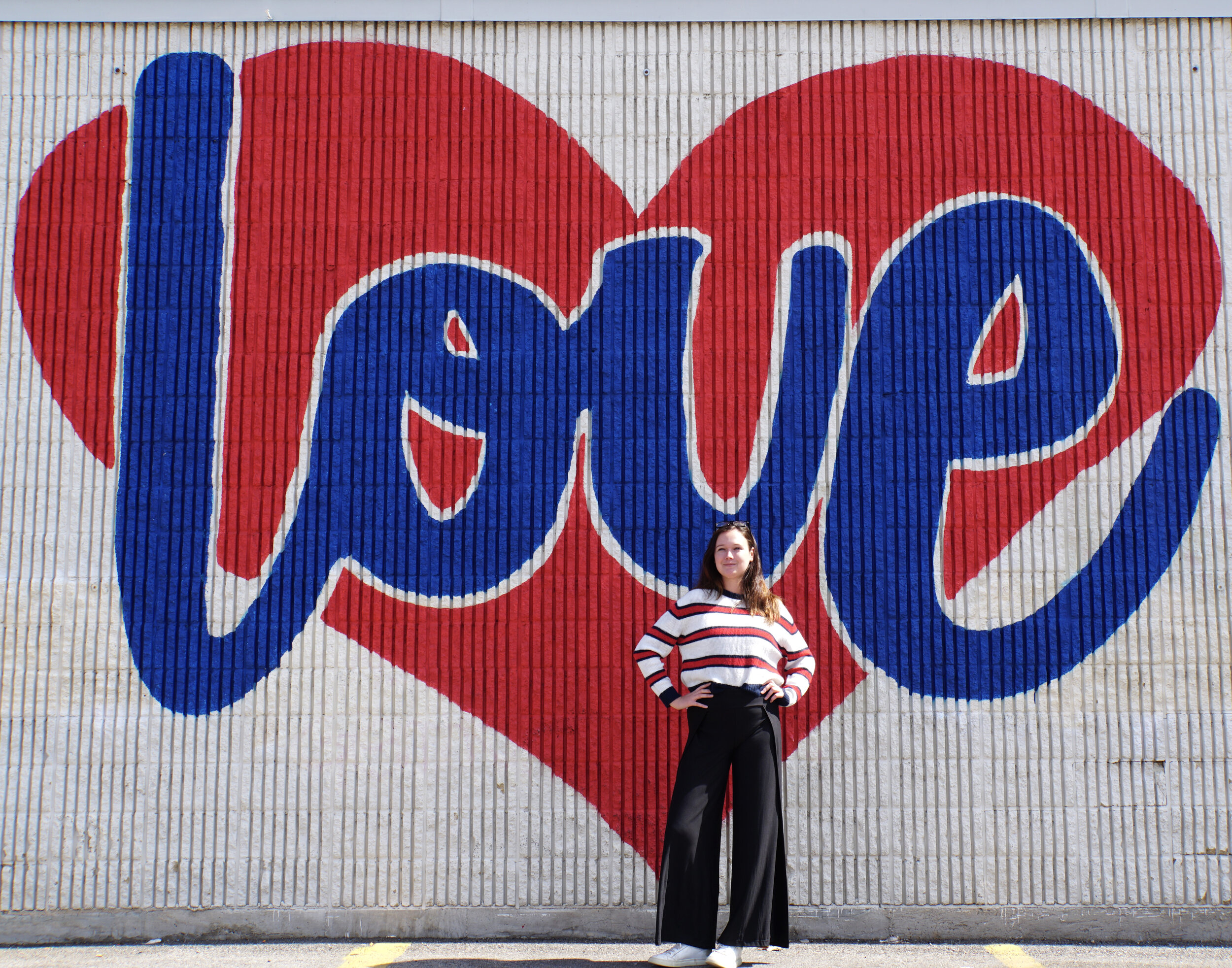
“I’ve never had an idea that I’ve spent a year on. I’ve had a million jobs and interests, but because I really believe in this, I don’t mind doing it,” Emmy says. “What I’ve learned is you have to bet on yourself, and the best things come out of taking risks. I’ve had so much positive reception and support from the community that now we have investors looking at us. It makes it all worth it, and I’m happy I took the risk.”
If you are interested in volunteering at Oluna, please fill out the form located under the Contact link on their website. To shop Oluna’s fun and fashionable pants, learn more about their mission, or to follow and join the movement, please visit oluna.co.
More Good Stories
Featured
When Kathy and Larry Helm heard about The Senior Source’s 60th Birthday Diamond Dance-Off, they knew they had to put on their dancing shoes! For the Helms, this event combined two of their passions into one. Celebrating and supporting The Senior Source, a Dallas-area nonprofit that has been serving older adults for 60 years, and dancing together, which they have been doing since they were high school sweethearts. Both Kathy and Larry have chaired the board of directors of The Senior Source and have been proud supporters since 1998. It seemed only fitting they should be voted into the finals to dance on stage at Klyde Warren Park this past summer.
In 2020, more than 912,000 women were diagnosed with some form of cancer in the United States alone. During that same pandemic year, countless medical appointments were canceled while people were social distancing, and yet still each day nearly 2,500 women heard the news, “you have cancer.” There is no doubt that these words can be crushing to hear, but what’s equally crushing is the lack of tangible, encouraging support that exists to help women feel beautiful, strong or “normal” before, during and after cancer treatment.
When Tom Landis opened the doors to Howdy Homemade in 2015, he didn’t have a business plan. He had a people plan. And by creating a space where teens and adults with disabilities can find meaningful employment, he is impacting lives throughout our community and challenging business leaders to become more inclusive in their hiring practices.
Have you ever met someone with great energy and just inspired you to be a better you? Nitashia Johnson is a creator who believes by showing the love and beauty in the world it will be contagious and make an impact. She is an encourager and knows what “never give up” means. Nitashia is a multimedia artist who works in photography, video, visual arts and graphic design. Her spirit for art and teaching is abundant and the city of Dallas is fortunate to have her in the community.
The United Nations Association Dallas Chapter (DUNA) honored Rev. Bill and Norma Matthews for their ongoing commitment, helping advance the United Nations Sustainable Development Goals agenda by promoting peace and well-being.
